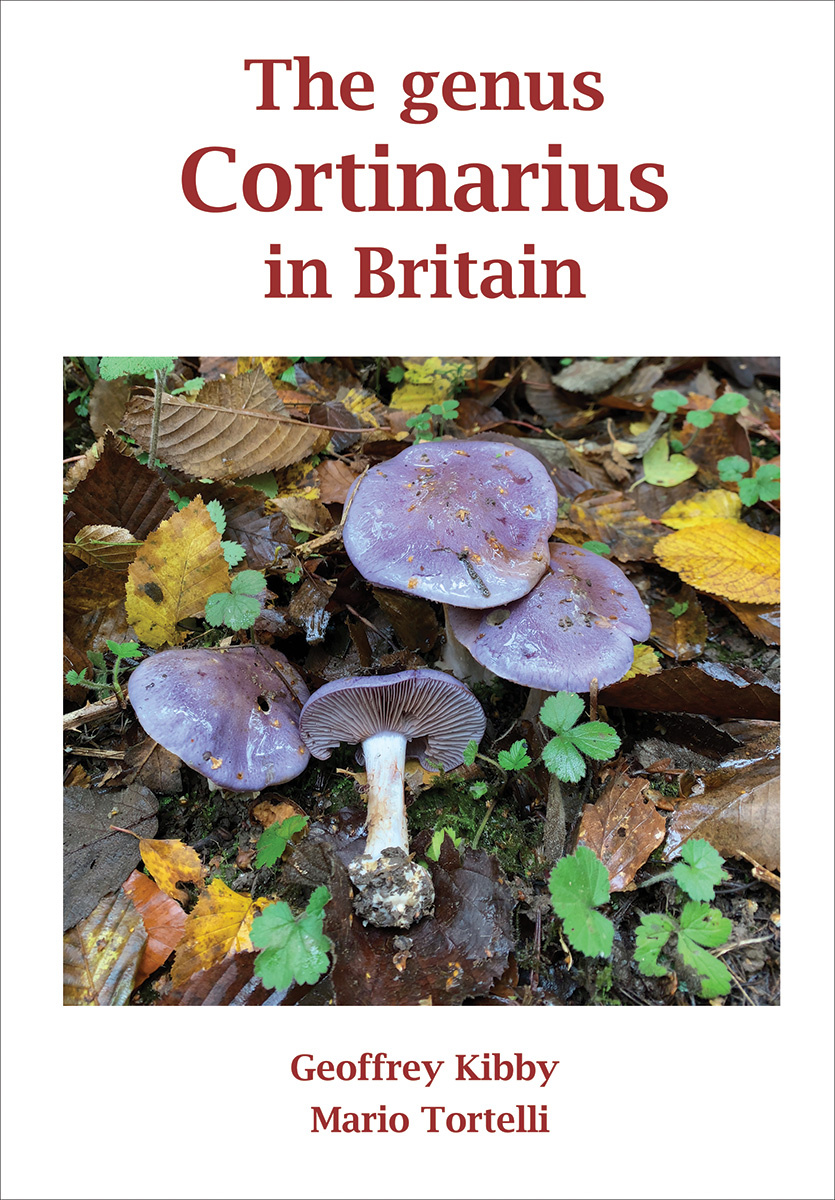





The Genus Cortinarius in Britain
- Including 9% Tax: €62,52
- Excluding VAT: €57,36
- Free shipping in the Netherlands from €50,-*
- Ordered before 5 p.m. on working days? Shipped the same day!
- 14-day money back guarantee
- We are happy to think along!


















| Authors | Geoffrey Kibby and Mario Tortelli |
| Language | English |
| ISBN | 9780957209480 |
| Publisher | Geoffrey Kibby |
| Pages | 168 |
| Size | 217 × 303 mm |
| Format | Hardcover |
| Images | Colour photos and illustrations |
| Year published | 2022 |
The Genus Cortinarius in Britain by Geoffrey Kibby and MarioTortelli features over 330 British species and is Illustrated by colour photographs and illustrations. This includes drawing of spores along with identification keys to subgenera and species.
This is the first major work on the genus Cortinarius in Britain for over 60 years with many species illustrated here for the first time.
The genus Cortinarius is considered the largest group within the agarics with over 2000 species being described worldwide. Many voluminous and multi volume works on Cortinarius have been produced in Europe from about 1990 to the current time, but little published work exists in English, since Peter Orton’s major works in the 1950s.
The authors of this current book point out that the three works most often used for recent identification purposes, viz. The 5 volume Cortinarius Flora Photographia, the 24 volume Atlas des Cortinaires and the 5 volume Il Genere Cortinarius in Italia, whilst being very complete in terms of description and excellently illustrated, have certain limitations for users in the UK. Their size and hence cost, the language difficulties for English language only readers, and a bias towards either species from northern arboreal habitats or thermophilic ones from southern European habitats.
Perhaps more importantly, in an age when DNA sequencing is revolutionising systematics, the limitation of the morphological approach used in previous studies, to unequivocally identify or separate out species, is becoming more apparent. Sequencing is now more modestly priced and efficient than ever before, becoming an increasingly essential tool for identification purposes and to resolve synonymy.
In attempting to illustrate most species known in Britain at the present time, this current work goes some way to addressing the above issues. Thus, information on Cortinarius in Britain is available to a potentially wide readership, some of whom may have previously lacked access to or not considered any relevant literature on the genus. The work is more modest in scope and hence more affordable than the three European works previously described. Finally, we might note that nearly half of the photographs are of samples that were subsequently sent for sequencing, their identification being based on these results usually by comparison to type sequences.
There are no reviews written yet about this product..
Complete your order